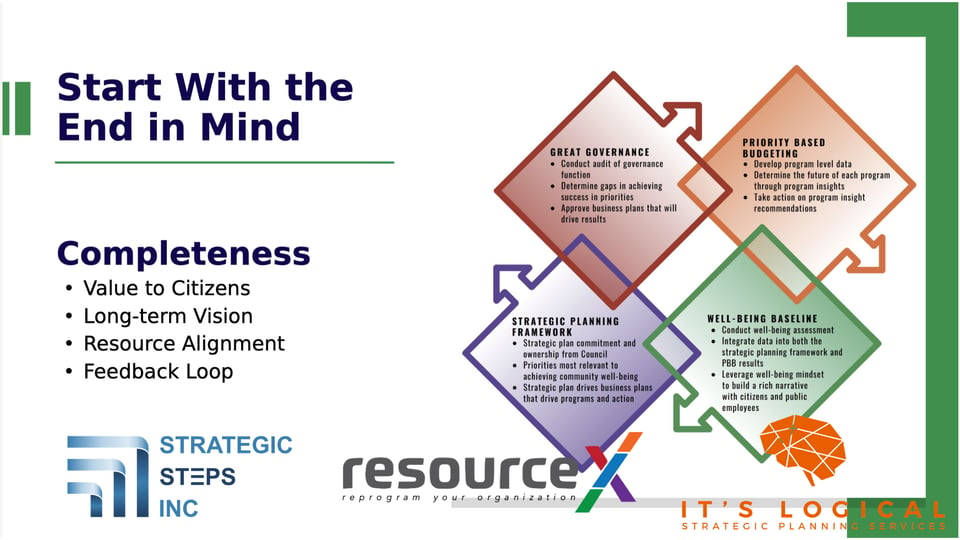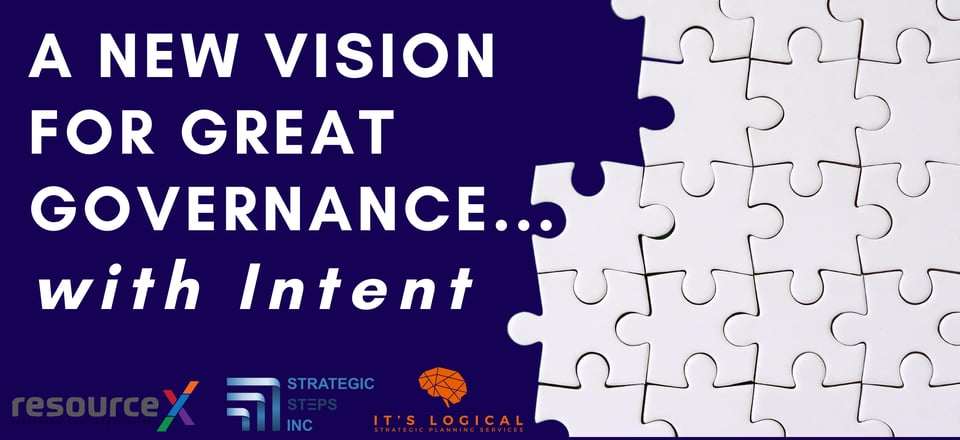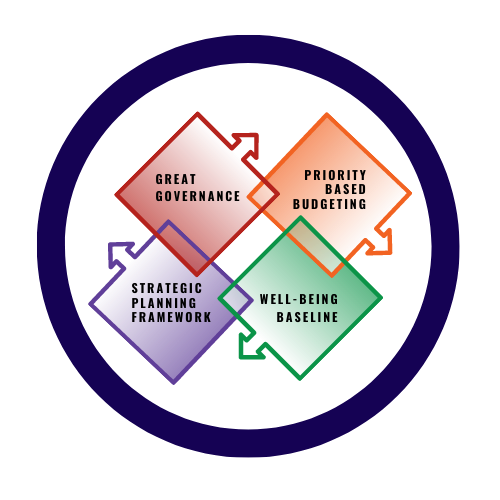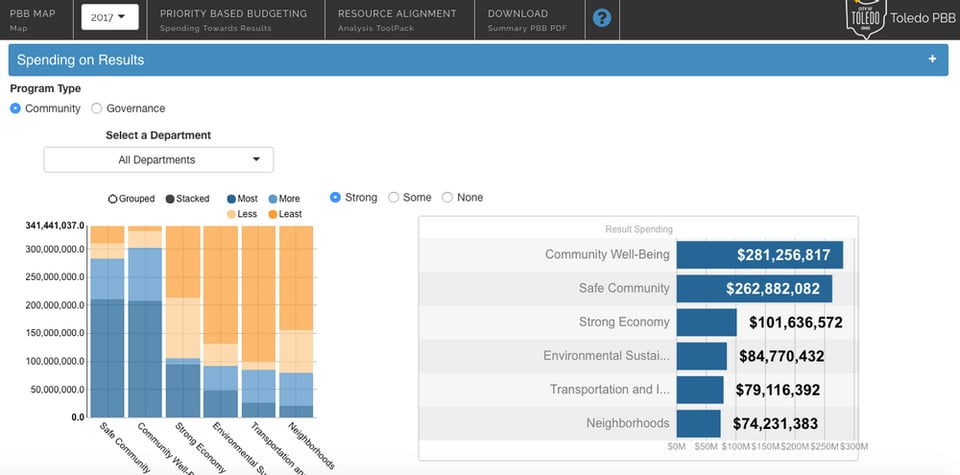Chris Fabian, Ian McCormack and Kelly Rudyk teamed up at Govapalooza to present on their new partnership and to take a deep dive on the “Unification Theory of Local Government.”
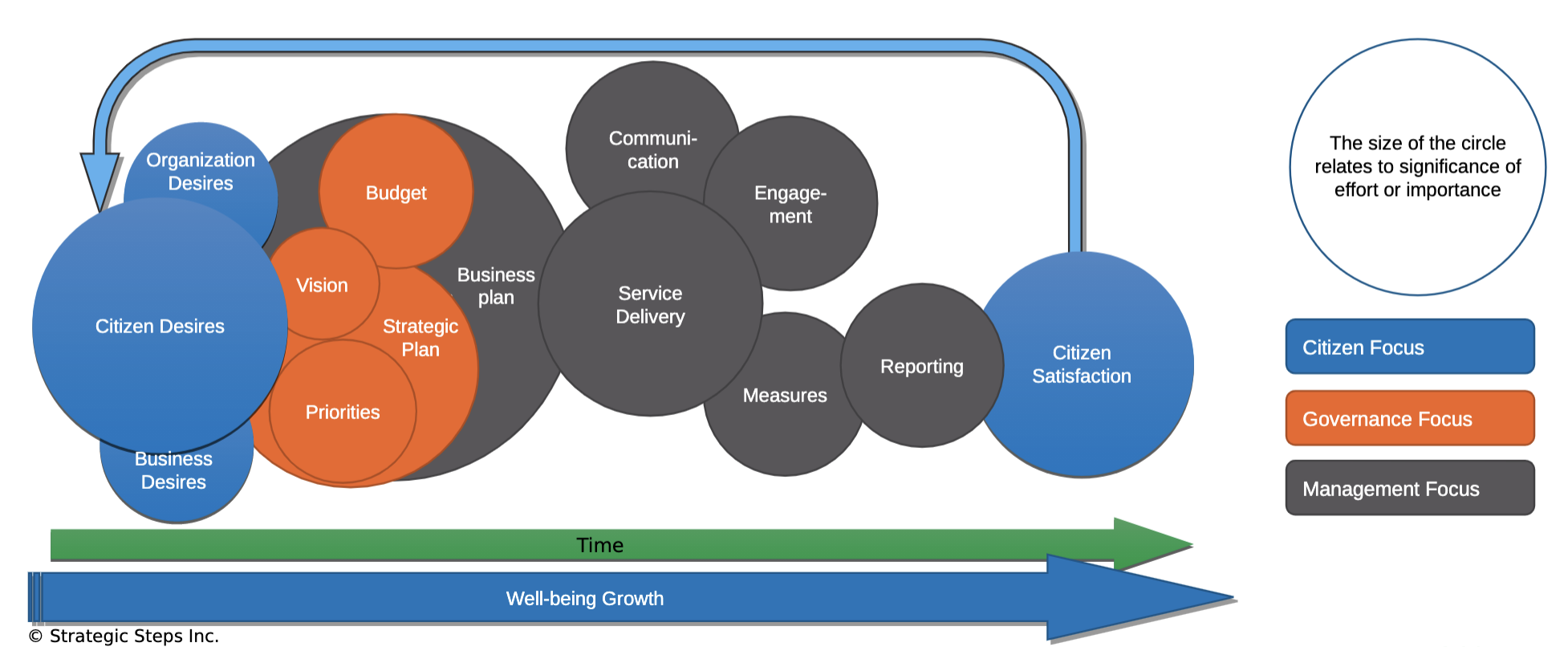
The “Unification Theory of Local Government”
The “Unification Theory of Local Government” is a way of illustrating how delivering on the core concepts of government responsibility ultimately leads to citizen well-being. This model has three areas of focus; the first and primary is on citizens, the second is on the provision of good governance, and the third is on management and its ability to deliver what citizens want.
.png?width=2240&name=Govapalooza%202021_Applying%20and%20Resource%20Reallocation%20and%20Maximization%20(2).png)
This interactive webinar illustrated the vision these three companies share for creating communities where people want to live and where local governments include citizens in the feedback loop when determining their short and long term visions.
.png?width=2240&name=Govapalooza%202021_Applying%20and%20Resource%20Reallocation%20and%20Maximization%20(1).png)
The expertise of the three companies, ResourceX, It's Logical and Strategic Steps, provides the complete vision and helps to put all of the pieces together. Each company brings a specific focus and strengthens the others to ensure all of the gaps are filled.
During this webinar questions were posed to the attendees:
WHAT REPRESENTS GREAT GOVERNANCE TO YOU?
.png?width=2240&name=Govapalooza%202021_Applying%20and%20Resource%20Reallocation%20and%20Maximization%20(3).png)
WHAT IS, OR IS NOT, WORKING IN YOUR COMMUNITY?
.png?width=2240&name=Govapalooza%202021_Applying%20and%20Resource%20Reallocation%20and%20Maximization%20(4).png)
WHAT SHOULD THE FOCUS BE MOVING FORWARD?
.png?width=2240&name=Govapalooza%202021_Applying%20and%20Resource%20Reallocation%20and%20Maximization%20(5).png)
A significant benefit to this partnership is that there is no one jumping on point. We will meet you where you are and provide the relevant services in the order that makes the most sense.
 The Strategic Plan:
The Strategic Plan:
Living the Examined Life
The goal of creating a long term vision is not to just have it, but to use it, too! The creation of the strategic plan with Strategic Steps ties closely into the other areas of Priority Based Budgeting and establishing a Well-Being Baseline. It promotes a cascading alignment: if something isn't achieving the goal, why do you continue to offer it? The point is to establish those priorities that are important to you as an organization, to your community and to your citizens and then to examine your service offering through that lens.
During this process you will develop outcome goals that can be utilized in measuring your service delivery. There will always be more work than there are resources to accomplish it, so identifying those outcome goals in your strategic plan is an incredibly important part of the decision making process.
 Priority Based Budgeting:
Priority Based Budgeting:
Creating the Right Data to Serve Your Objective
In a world where "data-driven" has become an increasingly pursued pathway, how can organizations create the right data and use it in a better way? How can you create resource data to deliver and focus on your strategic plan?
Priority Based Budgeting (PBB) recognizes the importance of the traditional line-item budget, but also recognizes the limitations of it. PBB brings the line-item budget to life through the creation of programs and the allocation of line items to those programs. If organizations can re-center the conversation about resources to the program level, they begin to align budget decisions to the actual cost of providing a service and how much each service contributes to the ability to successfully achieve the priorities outlined in the strategic plan. It enables organizations to have conversations about change backed by data including the total cost, from where those costs are coming, who the programs serve with details about why each program is being provided, and how each program aligns to each outcome goal described in the strategic plan.
.jpeg?width=200&name=Its-Logical-Logo-A2%20(1).jpeg) Well-Being Baseline:
Well-Being Baseline:
Local Government is in the Business of Citizen Well-Being
Your organization can start anywhere and anytime in its pursuit of increasing well-being in the community. Engaging citizens to understand what they believe is important to achieving a safe, happy and prosperous place to live where they want to live, stay and contribute.
Citizens drive demand and local governments respond to those demands. Through the budget, decisions that have been made are reflected back to the citizens and should reinforce what the community as a whole has decided is important. The decisions must be examined for both short and long-term impacts and successes... and incremental successes should be celebrated.
Organizations must keep asking of their citizens what is important, identifying that in their strategic plan and reflecting that back through decisions made in the budgeting process.
Learn more about this partnership here. Please reach out with any questions.
Additionally, a workshop series has been announced that will breakdown this NEW VISION FOR GREAT GOVERNANCE WITH INTENT into its component parts. We hope to see at future events to discuss Great Governance in your community.
